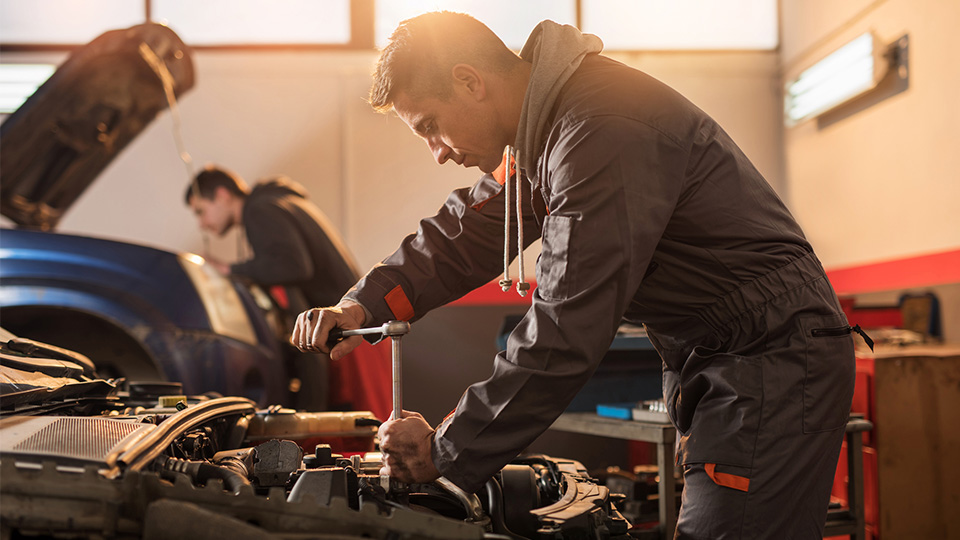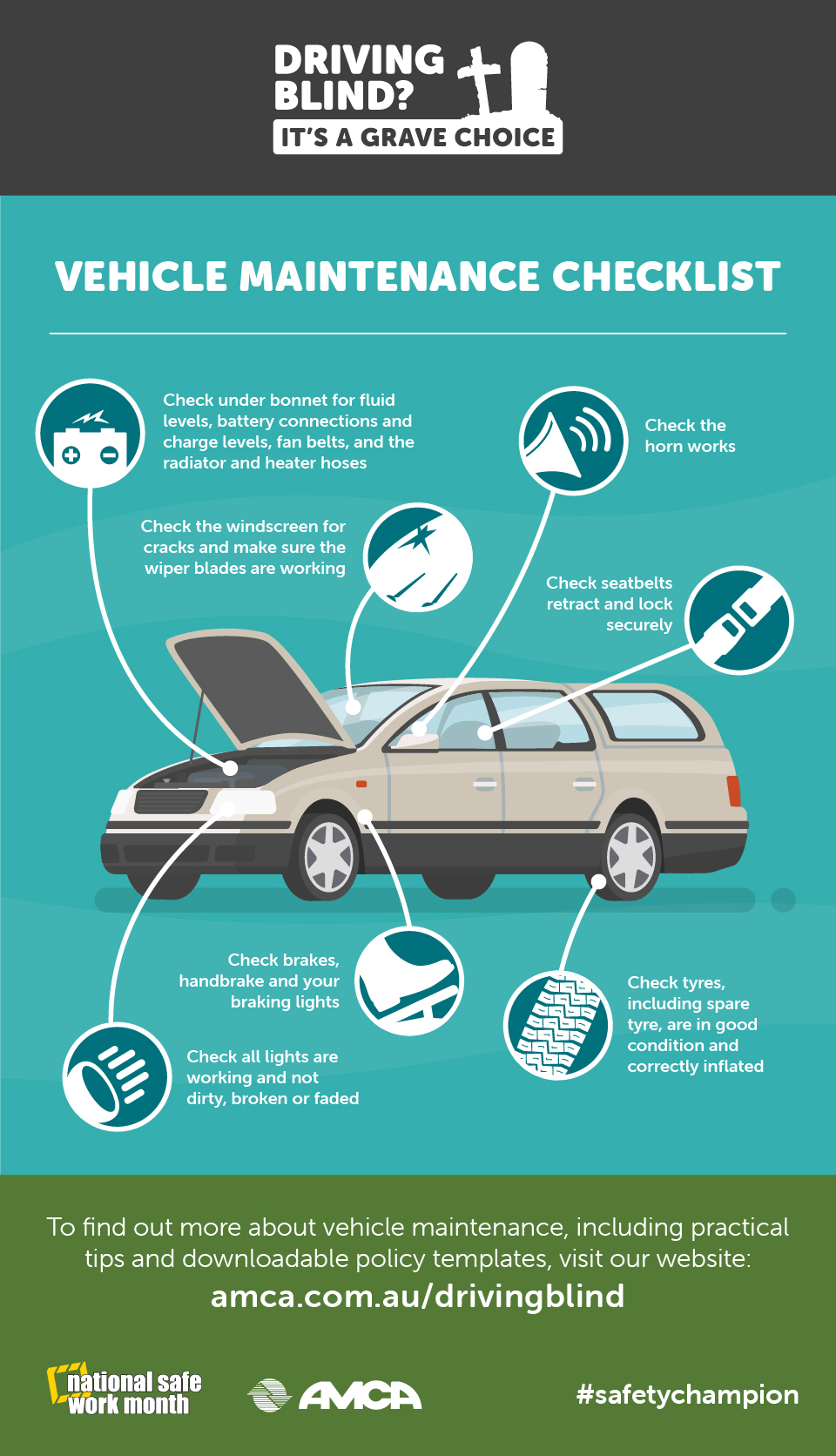October is National Safe Work Month, so the AMCA is driving home vehicle safety to keep people in the commercial heating, ventilation and air conditioning (HVAC) industry out of harm’s way.
This article is part of a series in our campaign, Driving blind? It’s a grave choice.
Vehicle maintenance is a key component of safe driving practices in the workplace, so it’s important to understand what to look for in different vehicles.
If you work in the commercial heating, ventilation and air conditioning (HVAC) industry, then it’s likely you drive a vehicle at some point in your job, including fleet, heavy or industrial vehicles.
Periodic vehicle maintenance is not only important for safety reasons — it also avoids break downs and extends the life of the vehicle and its parts.
The HVAC industry regularly uses different vehicles, including heavy vehicles, cranes and cherry pickers, so remember to check the vehicle’s manual and maintenance logs for specific information.
Vehicles found to be unsafe or defective should be taken off the road until the repairs are completed.
Here is a guide to basic vehicle maintenance, as well as specific maintenance needs for various heavy vehicles:

Basic vehicle safety checks
These vehicle maintenance tips are primarily for fleet and heavy vehicles, however they may also apply to forklifts, cranes, cherry pickers and other relevant vehicles.
Check that all of the tyres, including the spare tyre, are in good condition and are correctly inflated. Review them for large cuts, cracks and uneven wear on the tread shoulders.
Check your vehicle lights are working and not dirty, broken or faded. These lights can include:
- headlights
- front park and side lights
- brake lights
- tail lights
- turn signal indicator lights
- number plate lights
- reversing lights
- hazard or emergency lights
- side and clearance lights (if equipped).
Where relevant, take a look under the bonnet and check fluid levels, battery connections and charge levels, fan belts, and the radiator and heater hoses.
You should also review the brakes, horn, seatbelts, windscreen and wiper blades where applicable, and if a basic first aid kit is equipped.
Forklift maintenance tips
For forklifts specifically, you should check the gauges and instruments are working while the hydraulic oil should be full and free of leaks.
The forks and mast shouldn’t be bent, worn or cracked and the lift and lower functions should operate smoothly without excessive drift.
Your load rating plate must be readable, and the overhead guard must be fitted and free from bends and cracks.
Cherry picker maintenance tips
When working with cherry pickers or elevated work platforms, be sure to check the hydraulic hose system for leaks, and ensure pipes and hoses are firmly secured.
Review the platform gate locking systems and the condition of the padding on top of the platform top rail to avoid injuries.
Take a look at stress areas like booms, boom mounts and stabiliser bars for cracks and fatigues.
Crane maintenance tips
Check the crane functions and switches are working well, including the emergency and safety switches and interlocks.
Review the accuracy of the load moment indicators (LMIs) and rated capacity indicators (RCIs) with a test lift.
Remember to visually inspect structural components such as locking devices, gears, sheaves, fasteners, shafts, pins and wire ropes, and make sure moving parts are sufficiently lubricated.
Vehicle maintenance is a critical part of general work vehicle safety practices, which are essential to providing a safety-focused workplace and culture.
